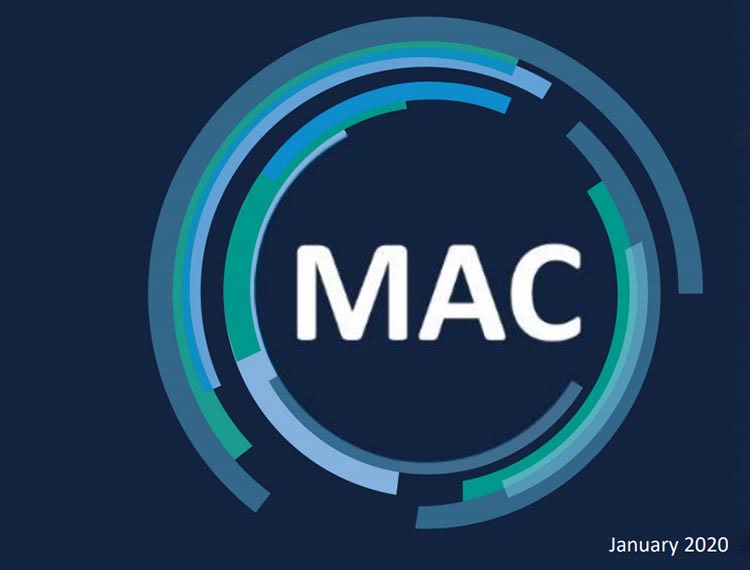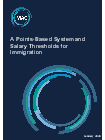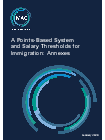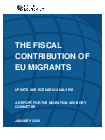British businesses need temporary visa route to secure skills

The Migration Advisory Committee (MAC) today published its recommendations to government on immigration policy post #Brexit. Instead of the government’s recommended £30,000, the MAC is proposing a lower income threshold of £25,600, below which a person cannot move to the UK for work.
The MAC acknowledges that the points-based immigration system will negatively impact on industries which rely more on low skilled migration, however the report stops short of recommending a temporary worker visa to help address major skills shortages across the economy, instead suggesting it as an option open to government.
The REC agrees with many of the recommendations but maintain there must be a temporary visa route that allows businesses to recruit the skills they need.
The REC’s JobsOutlook survey in December showed employer confidence in making hiring decisions hit its lowest point since mid-2016, with half of employers worried about skills shortages for permanent staff. Skills shortages are especially severe among lower paid jobs such as carers, agricultural workers and drivers.
Tom Hadley, Director of Policy at the Recruitment & Employment Confederation, said:
“The changes to the tier 2 visa system the MAC are suggesting will help businesses succeed post-Brexit, supporting jobs and economic growth in the UK. We hope the government takes them on board. It’s good news that the MAC is recommending ways of making the Tier 2 system better for employers and workers. Allowing more people from medium-skilled occupations to apply, abolishing caps on numbers of workers that can come in and proposing to get rid of the resident labour market test all make sense. So does lowering the income threshold, however we think the threshold should be even lower to address the skills needs of businesses who need labour at all pay levels.
“Skills shortages are one of the biggest problems facing the UK economy. We need an immigration system that can solve this. For food to be produced, for goods to be delivered and for our NHS to continue to be the best in the world. A flexible route into the country for temporary workers of all skill levels means that workers can move into sectors and geographies where they are needed without being tied to a particular employer. For instance, drivers can support our hospitality or retail sect depending where there is demand.”
Deputy Chief Executive Julian Gravatt said:
“The Migration Advisory Committee’s report is a detailed piece of work on a complicated subject. AoC shares the committee’s aim that government policy should aim to ensure that the UK should have a high wage, high skill and high productivity economy. The government’s plans to introduce new migration rules will require investment by employers, individuals and government itself to avoid new skills shortages.
“AoC welcomes the committee’s recommendation that the salary threshold for the skilled worker route should be set at £25,600 rather than £30,000 and that the rules for new entrants should be more flexible. The committee express concern that the data in this area is limited and say there is a risk that decisions will be taken and then changed at short notice in response to unexpected developments.
“The government’s plans involve a massive change for employers only 3% of whom currently have sponsor licences [30000 out of 1 million]. There is a risk that bringing in the rules and new systems too quickly in 2021 will cause unnecessary and unhelpful disruption to people, companies and public services.”
Alistair Jarvis, Chief Executive of Universities UK, said:
“As we leave the EU, it is vital that the UK remains a world leader in science and research and is open and welcoming to global talent to maximise universities’ positive impact on the UK economy and society. Some of the MAC recommendations are a step in the right direction, recognising the importance of employer demand but concluding the skilled entry route needs reform.
“While there is welcome recognition that the salary threshold of £30k was too high, there should be a further reduction to attract the diverse workforce, including lab technicians and language assistants, who are vital to supporting the success of our universities. We are also concerned that standard salary levels in higher education sectors would no longer be recognised, meaning it will be harder to attract international talent into key lecturer roles. Our recent polling showed the British public overwhelmingly believe that immigrants should be welcomed into the country on the strength of their skills and potential and not be judged on their salary alone.
“Combined with the recently announced changes to Tier 1 a package of positive immigration reforms is developing but needs further improvement. The Government must ensure that new immigration arrangements avoid potential unintended negative consequences for the ability of universities to attract the brightest talent with minimal barriers and to continue our world leading research and teaching.”
Migration Advisory Committee (MAC) report: points-based system and salary thresholds
The MAC responds to the Home Secretary’s commission into a points-based system and salary thresholds for immigration.
Documents
Details
This report responds to the request from the Home Secretary to the MAC to consider how a points-based system immigration system could be introduced in the UK to strengthen the UK labour market.
The MAC has also responded to the commission from the Home Secretary to review salary thresholds for the future immigration system.
The MAC is also publishing a report commissioned from external researchers, Oxford Economics, to extend their evidence base.
Read Professor Manning’s letter to the Home Secretary introducing the committee’s report.















Responses